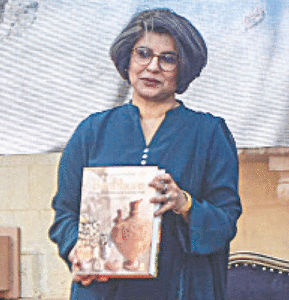HYDERABAD, Oct 11: About a quarter of 19.75 million children aged from five to nine years in Pakistan do not go to schools.
This was observed by speakers at a one-day programme held at the Sindhi Language Authority hall here on Friday in connection with International Day of the Girl Child.
The United Nations had on Dec 19, 2011 declared October 11 as ‘International Day of the Girl Child’ and the theme for the year 2013 is “Innovating for Girls’ Education.”
The speakers said that a huge number of girls, particularly those belonging to marginalised communities, were still deprived of this basic right. In many districts of Sindh, girls are not enrolled in schools or not allowed to complete their education for safety-related, financial, institutional and cultural impediments, they said.
Society for Protection of Rights of Child (Sparc) regional manager Kashif Bajeer told the audience that since the introduction of Education For All in 2000, there had been just 10 per cent increase in the literacy rate which was a cause of great concern. “The female segment of our society suffers the most in terms of education and employment,” he observed, and pointed out that 63 per cent girls of school-going age are sent to any educational institution for various reasons, mainly social taboos.
“Female literacy rate in Pakistan is 40 per cent as compared to 51 per cent in India and 52 per cent in Bangladesh,” he said, and urged the government to launch a nationwide campaign to ensure enrolment of all girls in schools. Strengthening Participatory Organisation (SPO) representative Mustafa Baloch said that giving girls their right to education was an obligation. He was of the view that educating girls at least to the secondary school level could create a powerful transformative force in society.
Ghaffar Malik, A civil society activist, said that there were 11 million children in the province who were in the age of schooling. Of them, only 6.4 million were getting formal education, he added.
In urban areas, he said, 54 per cent boys and 46 per cent girls were enrolled in schools but the ratio was quite different in the case of rural areas, where 63 per cent of boys and hardly 37 per cent girls were enrolled.
Nazeer Qureshi, a political and social activist, said that Pakistanis the European Union Award for Malala Yousufzai in recognition of her efforts to promote girls education was a matter pride for this nation. She said Ms Yousufzai had become a symbol inspiration for girls, and appealed to the audience to carry forward her mission.
Zahid Thebo of Sparc highlighted increasing cases of sexual abuse against schoolgirls in the country and said this showed how unsafe they were in their educational institutions and society.
According to the Madadgar National Helpline, an NGO, 5,659 cases of violence against children have been reported between January and October 2012 in the country. The figures also include 302 cases of sodomy and 407 cases of sexual assault, etc.
Another NGO, Sahil, in its annual report says that 3,861 cases of child sexual abuse were reported from different parts of the country in 2012. Almost 67 per cent of the cases were reported from the rural areas and 33 per cent from urban areas.
Participants in the programme included Dr Ashothama of the Human Rights Commission of Pakistan, Punhal Sario and Zahida Taj Abro.
Resolutions
A number of resolutions were adopted at the programme. One of them urged the Sindh government to urgently enact the long-pending laws on child protection.
The other resolutions called for severest punishment without possibility of release on parole or remission/pardon to paedophiles, rapists and those found guilty of other sexual abuse offences against children. It was stressed that child protection units should be established across the province and provision of free legal aid to child victims be ensured. Yet another resolution urged the government to ensure strict implementation of Article 25-A which envisages free and compulsory education for ever child aged five to 16 years.
The participants also demanded that all schools lying closed in the province should be made functional on a priority basis, ghost teachers be removed from payrolls and the monitoring and accountability mechanism for schools and teaching be strengthened.













































Dear visitor, the comments section is undergoing an overhaul and will return soon.